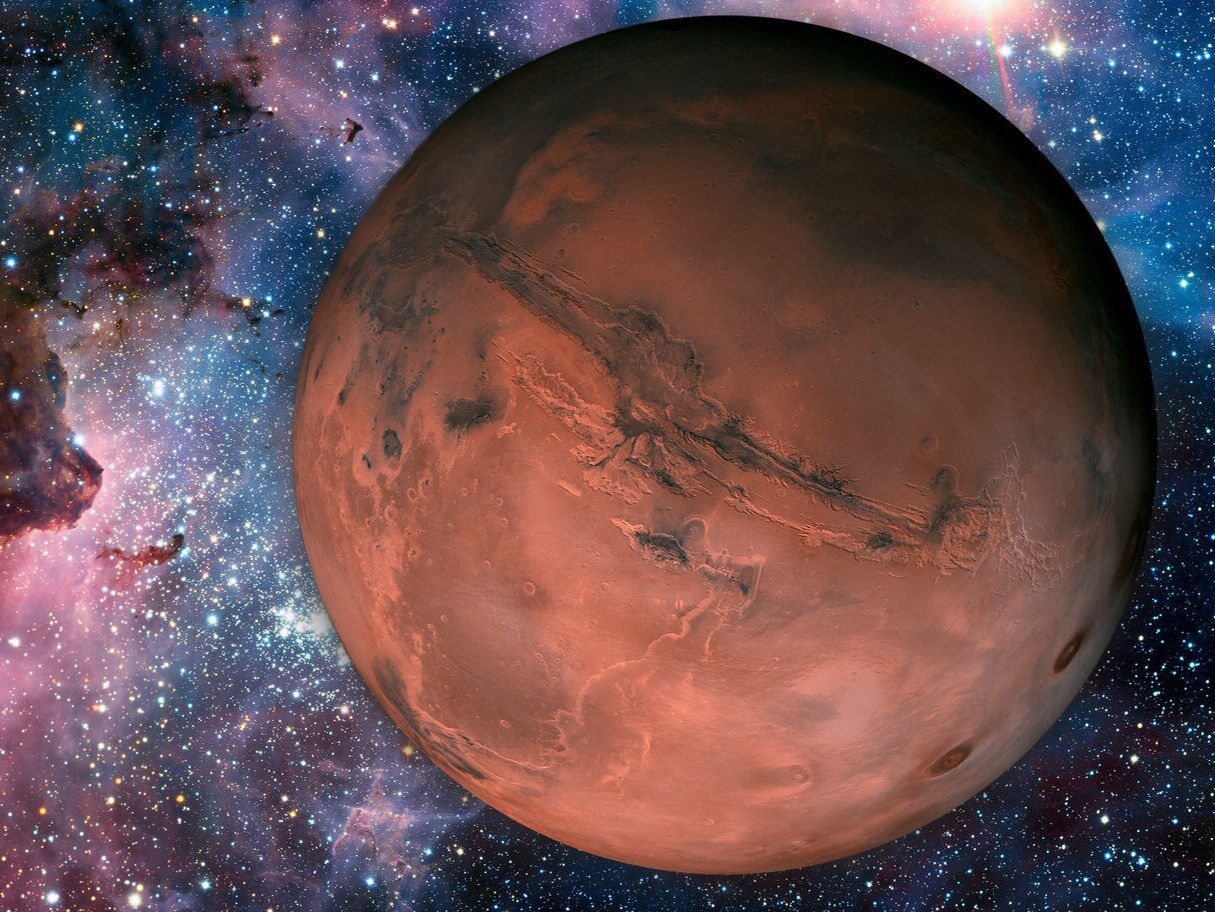A sensational discovery on Mars. These are probably gigantic deposits of water

Scientists exploring the surface of Mars made a discovery that led to the creation of a sensational theory about the presence of previously unknown, gigantic water deposits on Mars.
As humanity, we still know little about what may lie on or beneath the surface of Mars. Research on this subject is still ongoing and it will be a long time before humanity can seriously plan to colonize the Red Planet. Meanwhile, an amazing discovery has recently been made near its equator.
A sensational discovery on Mars
Scientists from the Smithsonian Institution, using a research probe, discovered unusual deposits on Mars that may suggest the presence of huge deposits of water ice on the planet. These are sensational reports because, if they turn out to be true after a series of more advanced tests, they will be the largest deposits of frozen water ever discovered in the central region of the Red Planet.
Research has shown that gigantic ice deposits may be located in the Medusae Fossae geological formation, which stretches over 5,000 km. kilometers along the equator of Mars. Much earlier, in 2007, another team of scientists also came across unusual sediments 2.5 km thick in this area, but more than 15 years ago it was not yet known how they could have been formed. The latest data from the MARSIS radar operating as part of the Mars Express mission were used for the latest research in these areas – those that brought with them these sensational reports.
Gigantic deposits of… water?
Geologist Thomas Watters from the Smithsonian Institution points out that the deposits just discovered are 3.7 km thick, so they are even larger than suspected a dozen or so years ago. The objects rise to a height of several kilometers and were carved by intense winds sweeping the surface of Mars.
All this indicates that there may be giant layered slabs of buried water ice beneath the surface of the Red Planet. If this turns out to be true in some time, we will have a sensational discovery of the largest amount of water ever found in this part of Mars. Scientists believe that there would be enough water to fill the Red Sea on planet Earth.






